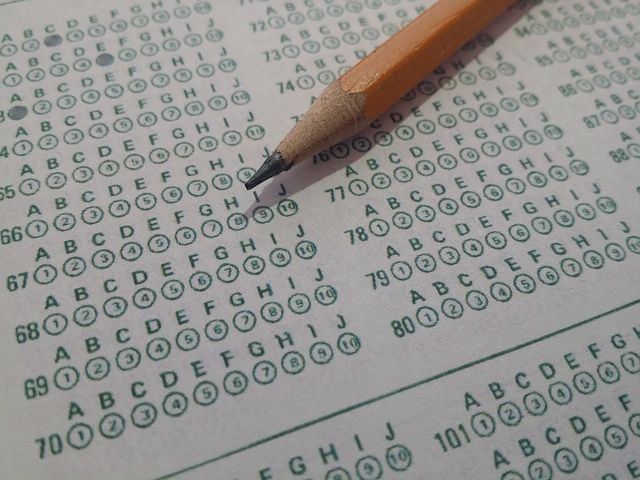Standardized tests: to take or not to take
ACT and schools going test-optional
September 11, 2020
The ACT is an important part of the college application process that plays a role in the future of all high school students. The test score that a student receives can determine whether or not they are a good fit for different schools. Many students study hours for this big test, but due to COVID-19, the ACT may not mean as much for the class of 2021.
The pandemic changed the college application process for seniors. Senior Farheen Khan is one of the many seniors that has been impacted by all of the changes that this pandemic has held on this year’s senior class.
“I have taken the ACT in the past but I’m also scheduled to take it in both October and December,” Khan said. “With the tests consistently being cancelled because of COVID, I can’t guarantee I will get to take the test.”
Multiple ACT tests have been cancelled over the summer due to the pandemic, keeping the safety of the students in mind. However, this impacts many students, unlike Khan, who haven’t had a chance to take the test.
Due to the unpredictability that COVID is having among the test taking process, the majority of schools have decided to go test-optional. This means that students applying for college for fall 2021, would have the option to decide whether or not they would like to submit their standardized test scores to their college(s).
However, many people have conflicting thoughts about schools becoming test optional. It’s important to allow students the opportunity to apply, even though they are being hindered from test-taking opportunities. However, Khan is worried whether or not submitting a test will help or hurt her chances of getting into the colleges that she wants.
“Going test optional seems great on the surface and it’s not a bad thing but the problem is that it doesn’t level the playing field in the light of COVID. Some kids will have scores to submit and some won’t,” Khan said. “This means that schools are going to be comparing kids with test scores and kids without together, and most schools are going to pick the kids with a score over one without.”
There is no way to know for sure whether or not to apply test-optional. However, due to the unknown circumstances, it would be a risk to apply test-optional. Nana Prange, college guidance counselor at PCH, believes that the ACT for this year’s application process will be unlike any other year.
“This year, more than ever, it isn’t that a student necessarily is choosing not to send a score they do not feel reflects their strengths, but that the student has no score to send at all,” Prange said. “Because of this, I think most colleges are viewing ACT or SAT scores as a supplemental resume item, similar to self-reporting AP exam scores.”
Some students who have not previously taken the ACT are still determining whether or not to take the test or apply to colleges test-optional. One of Parkway Central’s ACT class and math teachers, Sarah Reeves, believes that this change is allowing a wide range of opportunities for students in how they want to present themselves.
“I would say that students shouldn’t submit a score that they don’t want to be judged upon and it seems like anything someone submits would be considered as their ‘best work’ since they have a choice,” Reeves said. “I recommend that students who have the opportunity to take the ACT should take it because even with ACT-optional schools becoming the norm, why bar yourself from certain schools that you don’t have to?”
Another Parkway Central senior, Sophie Sokolik, has decided to take the ACT again before the college application process. While she plans to take the test again, she believes that schools going test-optional can be a great opportunity for students.
“If the school is test optional and I think my score is going to hurt my chances of getting in, I probably won’t submit it,” Sokolik said. “I think this opportunity is very fair because a lot of people haven’t been able to get their scores where they want and it will help kids if other parts of their application are stronger such as extracurriculars and grades and it won’t make them look at bad test scores and more on good things.”
Reeves wonders what the future holds for students and standardized testing after this year.
“I don’t know where exactly this trend is going,” Reeves said. “I almost have to believe that a system can’t completely change overnight and that the ACT will still be relevant in some way, but maybe it can.”

